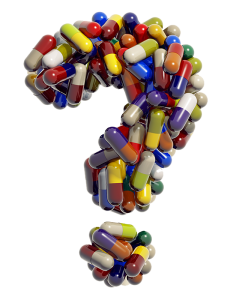Click on the question to drop down the answer.
At USADA, athletes often ask us, “Will my supplement make me test positive?” and “Is this supplement USADA-approved?” We also frequently hear, “My supplement contains ingredients A, B, and C…are these banned in sport? Can I go ahead and use this supplement?”
Unfortunately, the answer to all of these questions is that you always assume some risk of testing positive for prohibited substances when you use supplements because of how supplements are regulated. The Food and Drug Administration (FDA) does not analyze the safety, efficacy, or label accuracy of supplements before they are sold to consumers, which means that no one, including USADA, can look at a supplement label and tell you whether a product is safe and free from banned substances.
Additionally, it is well documented that some dietary supplements have been contaminated or spiked with performance-enhancing drugs, active pharmaceuticals, or research compounds.
USADA has seen examples of the following:
- The label lists a prohibited substance, but when the product is tested, the ingredient is not in the supplement.
- The label lists ingredients that are not prohibited, but testing shows the product contains a prohibited substance.
- Repeat testing reveals different ingredients in various batches of the same product.
Both the Supplement Connect High Risk List and the FDA Tainted Supplements webpage list MANY examples of tainted or spiked supplements. However, because of the number of supplements on the market, neither the Supplement Connect High Risk List nor the FDA Tainted Supplements List is an exhaustive, complete list. Both lists are constantly updated as additional high-risk products are identified. Currently, there could be many hundreds of products on the market that would qualify for one or both of these lists that haven’t been identified yet!
Please be aware that you are taking a huge risk by assuming the label is accurate and using it to make a decision about whether to use a supplement. Just because a label does not list any prohibited substances, it would be wrong to conclude that the supplement is safe, and it would be wrong to conclude that the supplement is USADA-approved.
If athletes choose to use supplements despite the known risks, USADA has always recommended that athletes use only dietary supplements that have been certified by a third-party program that tests for substances prohibited in sport.
USADA currently recognizes NSF Certified for Sport® as the program best suited for athletes to reduce the risk from supplements.
USADA does not evaluate, certify, approve, or endorse any dietary supplement or any dietary supplement company.
Athletes: If athletes choose to use supplements despite the known risks, USADA has always recommended that athletes use only dietary supplements that have been certified by a third-party program that tests for substances prohibited in sport.
USADA currently recognizes NSF Certified for Sport® as the program best suited for athletes to reduce the risk from supplements.
Retailers: USADA does not have a process to evaluate your products and USADA does not provide consulting services of any type regarding the manufacture or marketing of dietary supplements.
Some athletes get frustrated because they try to find supplements or specific ingredients on www.GlobalDRO.com but don’t get any search results returned. However, it is well documented that dietary supplement labels are not reliable, thus dietary supplements are not included on Global DRO. There are some ingredients in the database that may also happen to be in dietary supplements. Just because a search for an ingredient such as creatine or vitamin B comes back as “not prohibited,” there is no guarantee that only those ingredients are in the supplement or that it does not contain other undeclared ingredients. Global DRO was not designed to provide advice on the prohibited status of dietary supplements.
Plant-based ingredients can have many dozens or even hundreds of natural constituents, some of which may not even be identified or characterized yet. Although most herbs are safe to use in sport, some plants naturally produce prohibited substances. For example, Cannabis sativa naturally produces THC, the ephedra plant produces ephedrine and pseudoephedrine, Citrus aurantium (orange peel or bitter orange) produces octopamine, and Tinospora cripsa produces higenamine. If you choose to use an herbal dietary supplement, you should work with an herbal specialist who can advise you. The use of any supplement is at your own risk.

Ask the Expert
Have a supplement question? Let the experts answer it for you. Submit your question below.



